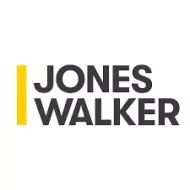- within Insurance, Law Practice Management, Government and Public Sector topic(s)
With the recent preliminary approval of the House settlement, many universities are preparing for a new era in which they directly contract with and financially compensate many of their student athletes. This change brings with it a host of new legal and practical challenges for such schools.
Chief among those concerns is finding additional revenue sources to fund these payments without having to make significant cuts to staffing, facilities projects, or non-revenue sports. It is unlikely that the traditional booster model will be sufficient in this regard, meaning that universities will need to seek new partnerships and creative business opportunities.
This week, the Big Ten and Big 12 conferences took such innovative action, agreeing to an official partnership with PayPal and Venmo. According to a PayPal press release, student athletes will be able to receive their revenue sharing payments through the PayPal/Venmo e-commerce platform. It is not clear from this press release whether athletes must receive their payments through PayPal/Venmo, or whether they simply have to option to do so. Further, Venmo will serve as presenting partners of both the Big Ten and Big 12, which likely includes or involves financial sponsorship.
While this sort of agreement reflects the new financial realities of college athletics, it is also indicative of the significant legal burdens and questions that participating universities now face. Although payment through PayPal/Venmo may be convenient for students, it may add complexity to the contracts participating universities present to them. If any service fees or other revenues will be deducted from an athlete's revenue sharing payments as a result of this PayPal agreement, then that clearly must be disclosed and agreed to in writing.
In addition, colleges and universities must consider federal, state, and local income tax implications associated with making revenue sharing payments to student athletes through a third-party settlement organization (TPSO), such as PayPal and Venmo. Depending on the nature of contractual relationships between universities and their student athletes (e.g., whether the student athletes are employees or independent contractors), colleges and universities likely will have federal, state, and local income tax withholding and reporting obligations. Regardless how a student athlete receives revenue sharing payments or how a college or university or TPSO reports the payments, the student athlete must report any income on his or her federal, state, and local income tax returns. Colleges and universities should pay special attention to communications and contractual terms regarding tax implications of revenue sharing agreements.
In all, the Big Ten/Big 12-PayPal agreement reflects the opportunities and challenges that await participating universities. New partnerships and revenue sources are there for entrepreneurial schools and conferences, but legal concerns and issues are around every corner. Finding a legal partner that can provide wide-spread and comprehensive legal advice and assistance will be crucial to universities' success in this new era.
"We are thrilled to enter into this landmark partnership with PayPal and Venmo," said Big 12 Commissioner Brett Yormark. "As we embark on a new era of college athletics, aligning with a global leader like PayPal will unlock a wealth of opportunities for the Big 12. This partnership will also empower our student-athletes to receive payments through a secure, trusted platform they already know and use."
The content of this article is intended to provide a general guide to the subject matter. Specialist advice should be sought about your specific circumstances.



